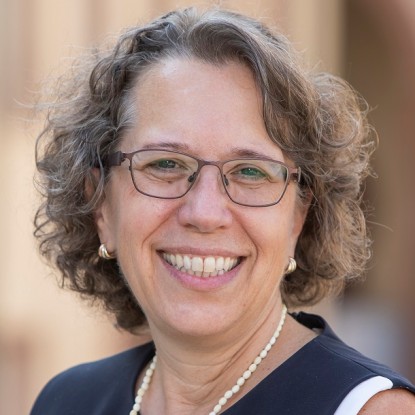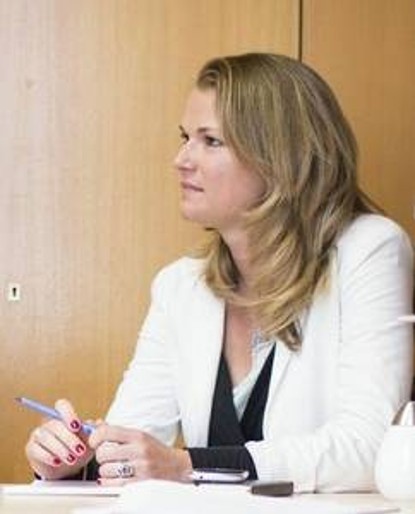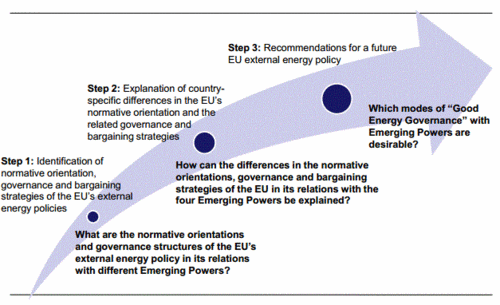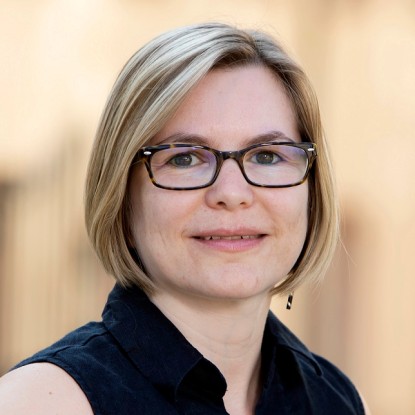
The international, interdisciplinary research project focuses on two major global challenges that the EU is currently facing: First, the establishment of a multipolar world order with emerging powers as prospective cooperation partners; and second, the challenges of a secure, competitive and sustainable EU External Energy Policy towards major consumer countries.
The international, interdisciplinary research project “Challenges of European External Energy Governance with Emerging Powers: Meeting Tiger, Dragon, Lion and Jaguar”, focuses on two major global challenges that the EU is currently facing: First, the establishment of a multipolar world order with emerging powers as prospective cooperation partners; and second, the challenges of a secure, competitive and sustainable EU External Energy Policy towards major consumer countries.
Research will be carried out in three steps:
- Identifying differences in the normative orientation, governance and bargaining strategies of the EU’s energy policy towards China, India, Brazil and South Africa.
- Explaining these differences with reference to the EU/member states and private actors’ interests, different Directorate General responsibilities, emerging powers policy styles and alternative cooperation forms for emerging powers through regional/multilateral embeddedness.
- Offering policy recommendations for a future “External Energy Governance”. Here, we will outline concrete policy options for sustainable energy governance in an increasingly multipolar world. Therefore, our project strongly emphasizes close connections between academia and policy consultancy and involves experts of European and overseas think tanks.
A set of one dependent and several independent variables serves as an explanatory framework which allows to pose a set of hypotheses.
The following set of independent variables has been drafted in order to explain the specific configurations of EU External Energy policy towards the Emerging Powers.
Michèle Knodt is Jean Monnet Professor for European Integration and Comparative Politics at the Technische Universität Darmstadt, Germany, and the project leader of the research project “Challenges of European External Energy Governance with Emerging Powers”. She is conducting research on the new role of emerging powers in international politics with a special focus on energy cooperation. Furthermore, her research interests include EU external democracy promotion in the Baltic States, Central Asia and Southern Caucasus as well as civil society engagement in the European multilevel system.
Franziska Müller is a researcher in the excellence cluster “Normative Orders” at the Department of Political Science at the Technische Universität Darmstadt, Germany. She is currently finishing her PhD, which focuses on questions of governmentality and normative power within EU-Africa relations. Her research interests include international relations, external energy policies of the EU and of Emerging Powers, development studies and qualitative social research; especially discourse analysis and ethnography. In the project she works on EU-emerging powers energy relations as well as questions of international energy governance.
Nadine Piefer is a researcher and PhD candidate at the Department of Political Science at the Technische Universität Darmstadt, Germany and the project coordinator of the research project “Challenges of European External Energy Governance with Emerging Powers”. Her research focuses on the energy relations of emerging powers, European Union external-, development and energy policy, emerging donors, and triangular cooperation. Nadine has also been working as consultant for Deutsche Gesellschaft für Internationale Zusammenarbeit (GIZ) on the topics of triangular and regional cooperation.
Marina Schmid is a PhD candidate at the Department of Political Science at the Technische Universität Darmstadt. Her research interests include interest group politics, the role of corporations in global governance and transnational cross-sectoral social partnerships. Within the project she is focusing on the role of multinational corporations in EU multi-level energy governance with Emerging Powers. She aims at contributing to a micro political theory of transnational corporate political action.
Jens Steffek is Professor for Transnational Governance at Technische Universität Darmstadt. In his research he focuses on the policy and history of international organizations, theories of international relations, democratic theory and the role of transnational private actors, especially non-governmental organizations. Working from an empirical-analytical as well as from a normative perspective, he will contribute to the project by systematically analyzing the role of non-governmental organizations and multinational corporations in transnational energy governance.
Gesellschaft für Internationale Zusammenarbeit (GIZ)
Ulrich Müller is senior policy adviser in the Asia / Pacific, Latin America / Caribbean Department at Deutsche Gesellschaft für Internationale Zusammenarbeit (GIZ), Germany. He has a PhD in Geography and is also a guest lecturer at Technical University Darmstadt, where he has lead several courses on development politics, emerging powers and triangular cooperation. His work is mainly oriented towards strategic topics, such as e.g. new forms of cooperation with emerging powers. In the project, Ulrich works on development related energy issues, the shift from development to international cooperation with emerging powers, specific policy consultancy as well as on how international high-level dialogues can be implemented in practice.
Knud Erik Jorgensen is Jean Monnet Professor for European Integration at University of Aarhus, Denmark. He is an expert on European Union politics within the multilevel governance system and on the EU’s (normative) role in world politics. In the project, he will focus on EU governance structures in the field of energy as well as on coordination between the EU and its member states in energy relations with emerging powers.
Yonatan Schvartzman is a post-doc researcher at the Institute for Political Science, University of Aarhus, Denmark. Yonatan has specialized on state and private actors coordination within the field green market development. In the project, he will focus on EU governance structures in the field of energy as well as on coordination between the EU and its member states in energy relations with emerging powers.
Katharina Michaelowa is Professor of Political Economy and Development at the University of Zurich, Switzerland. Katharina is an expert on international climate policies, development studies, economics of aid, public choice, and education policy. Within the project she is focusing on the role of private actors, especially non-governmental organizations, in transnational energy governance. More specifically, she is working on an empirical study on the role of non-governmental organizations in EU-India energy relations. She has recently completed related work on India in the international climate change negotiations.
http://www.ipz.uzh.ch/institut/mitarbeitende/staff/michaelowa.html
Daisuke Hayashi is a PhD Candidate at the Chair of Political Economy and Development with Prof. Katharina Michaelowa at the University of Zurich, Switzerland. He is researching on the role of absorptive capacity in international transfer of low-carbon technologies to developing countries, as well as on the design of carbon market mechanisms in the post-2012 international climate regime. Within the project he examines the role of international transfer of renewable energy technologies in the EU-India energy governance. To this end, he combines his academic skills with practical insights gained through his prior professional experience as consultant and researcher on carbon market mechanisms.
Swiss Federal Institute of Technology Zurich
Mark Daniel Jäger is a PhD Candidate and a researcher at the Center for Security Studies (CSS) at the Swiss Federal Institute of Technology Zurich (ETH Zürich) and currently completing his PhD dissertation on international sanctions policies. Within the research project he is focusing on the role of private actors, especially non-governmental organizations, in transnational energy governance. In the project, he is working on an empirical study on the role of non-governmental organizations in EU-India energy relations.
Zha Daojiong is a professor of international political economy at Peking University, specializing in such non-traditional security issues as energy, food, and water. He is active in consultations with a wide range of government, business, and academic bodies interested in how China relates with the rest of the world on those and related topics.
He is editor of Managing Regional Energy Vulnerabilities in East Asia (Routledge, 2012), first author of Building a Neighborly Community: Post Cold War China, Japan, and Southeast Asia (Manchester University Press, 2006), author of The Political Economy of China's Oil Security (China Modern World Press, 2005), and editor of Chinese Scholars View the World: Non-traditional Security (China New World Press, 2006), in addition to dozens of journal articles in Chinese and English languages.
He obtained a doctorate in Political Science from the University of Hawaii and held teaching and research positions in Japan, the United States, Singapore and elsewhere.
Lai Suet Yi (Cher) finished her doctoral studies in National Centre for Research on Europe, University of Canterbury, in 2012. Her Ph.D thesis focuses on the contribution of Asia Europe Meeting (ASEM) on Asia-Europe relations, regionalism and inter-regionalism. Cher obtained her Bachelor degree in European Studies from Hong Kong Baptist University in 2006. Her honour paper was on “the role of France in the Treaty of European Constitution”.
Since 2006 she has been a researcher of “EU in the eyes of Asia” and “Asia Through the eyes of Europe”, published numerous research papers on the external image of the EU, Asia-Europe relations, China-Europe relations and ASEM. Between July and October 2010, Cher completed an internship in World Programme desk of the European Policy Centre (Brussels-based think tank). Since September 2012, she has been academic manger of a new trans-national research project, External Images of the EU: Images of the EU as Normative Energy Player, which involved the BRICS countries as well as the EU Big 3. She served as Post-doctoral Fellow in the Europe and EU Centre of Monash University, Australia, in April and May 2013.
Deepti Mahajan is Associate Fellow, Centre for Research on Energy Security, TERI. She is engaged in research on energy policy, geopolitics and energy trade, and the inter-linkages between energy and climate. A core team member on various projects, she has conducted research on India’s energy security concerns, particularly geopolitical developments and India’s external energy supply; regional energy cooperation; and multilateral governance of energy and climate; amongst other areas. She has contributed to background papers for the TERI-Yale U.S.-India Energy Partnership Summit; the Asian Development Bank’s High Level Dialogue on Climate Change in Asia and the Pacific; and for the High-level India-Europe Seminar organized by Action for a Global Climate Community and the Potsdam Institute for Climate Impact Research. She is currently pursuing doctoral studies at School of International Studies, Jawaharlal Nehru University.
Swati Ganeshan is Associate Fellow at the Centre for Global Agreements, Legislation and Trade in Resources, Regulation and Global Security Division of The Energy and Resources Institute (TERI), India. She is currently coordinating the Asian Energy Institute secretariat hosted by TERI that focuses on research on energy, climate and sustainable development issues. Her current research in TERI is largely focused on geopolitics of resources both energy and non-fuel minerals, resource and energy governance, resources and conflicts, resource investments abroad – the associated diplomatic and geopolitical strategies, domestic and international issues around nuclear energy including uranium and geopolitics in context to climate change. Her current research projects include Analysing Global, Regional and National Energy Governance Structures focused on resource development and energy governance; EU and emerging powers energy governance issues; Energy Risks among others.
Madhura Joshi is Research Associate at Centre for Research on Energy Security, TERI. Her research interests include energy policy, geopolitics of energy (particularly oil, natural gas and nuclear), energy and sustainable development, amongst others. Some of the projects she is involved in are studying the linkages between domestic and multilateral institutions on energy regulations; energy risks (evaluating the risks associated with various fuel sources in the context on India); working on an energy security outlook for India; EU and emerging powers energy governance issues; and looking at environmental governance in the context of sustainable development. She is also the co-editor of ‘Energy Security Insights,’ a TERI periodical. Prior to TERI, she was with Gateway House – a foreign policy think tank, where she worked on papers which looked at the political-economy and the future of the Turkmenistan-Afghanistan-Pakistan-India pipeline; and India-Bangladesh bilateral relations in the realm of environmental governance while at Gateway House.
Judy Smith-Höhn is Programme Manager of the “Global Powers and Africa” Programme at the South African Institute of International Affairs (SAIIA) in Johannesburg. Her main research focus is on peace and conflict resolution in Africa, which is often closely linked to resource governance and energy issues. In the project, Judy is leading the South Africa country team and investigates EU-South Africa energy relations as cross-cutting issue from various angles, especially within the realm of climate change policies.
Agathe Maupin is a Research Fellow in the Global Powers and Africa / Governance of Africa’s Resources Programme at the South African Institute of International Affairs (SAIIA) in Johannesburg. She is an expert on water and energy resources management in Southern Africa as well as EU external energy relations with Africa. In the project, Agathe investigates EU-South Africa energy relations as cross-cutting issue especially within the realm of climate change policies and within the regional context of the Southern African Power Pool (SAPP).
Roberto Schaeffer is Professor of Energy Economics in the Energy Planning Program (PPE) of the Federal University of Rio de Janeiro (UFRJ), Brazil. Roberto is a well-known expert on Brazilian energy and climate policies and regularly advises members of the Brazilian government on energy issues. He is also a member of the Working Group III of the Intergovernmental Panel on Climate Change (IPCC). In the project, Roberto leads the Brazil country team, which has a special focus on the nexus between energy and climate change.
Aline Ribas is a senior consultant in climate change and sustainable energy currently working towards a doctoral degree at the Energy Planning Program, offered by the Graduate School of Engineering (COPPE) of the Federal University of Rio de Janeiro. She has 10 years of experience in climate change policy and greenhouse gas mitigation, primarily within the UN process, but also within other carbon regulatory frameworks. More recently, her research work has focused on the production, distribution and use of sustainable energy in the context of the global climate change agenda and green economic development goals. An Economist by training, Ms. Ribas started her career working with commodities trading and risk management in the sugar, non-ferrous metal, and oil industries. In the project, Aline focuses on Brazil’s presence, perception and role in the international dialogues on renewable energy, particularly with the EU.
Susanne Gratius is a senior researcher at the Fundación para las Relaciones Internacionales y el Diálogo Exterior (FRIDE), Spain, and Associate Professor at the Complutense University in Madrid. She is an expert on Latin America and her research also focuses on EU-relations with emerging powers. In the project, Susanne works on EU-Brazil relations, aspects of South-South Cooperation, Spanish energy policy and the energy-climate change nexus.
Richard Youngs is director of the Fundación para las Relaciones Internacionales y el Diálogo Exterior (FRIDE), Spain. He is an expert on EU democracy promotion and democratization in various world regions, EU foreign policy, climate change and questions of energy security, which is also his main focus in the project and subject of several books he published.
Amrita Narlikar is Reader in International Political Economy at the Department of Politics and International Studies, and is Official Fellow of Darwin College. She is also the Director of the newly established Centre for Rising Powers. Her research focuses on trade politics, multilateral negotiations, and rising powers. In the project, Amrita works on the embeddedness of rising powers in international energy governance structures and on trade related energy issues.
Dan Kim is a post-doc researcher at Cambridge University and editor of the Centre for Rising Powers’ Working Paper series. Together with Amrita, he works on the embeddedness of rising powers in international energy governance structures and on trade related energy issues.
http://www.polis.cam.ac.uk/contacts/staff/narlikar-amrita.html
Kirsten Westphal is senior researcher at Stiftung Wissenschaft und Politik (SWP), Germany. Her research focuses on international energy governance, German and EU energy policy, EU-Russia energy relations and EU-emerging powers energy cooperation. Whilst she works on all kinds of fossil fuels, she is currently also investigating possibilities of multilateral cooperation on renewable energies, e.g. IRENA, and the role of emerging powers in international energy governance.
Funding institution: VolkswagenStiftung/Compagnia di San Paolo/Riksbankens Jubileumsfonds
Funding period: 01.06.2011 – 31.05.2014
Funding budget: € 779.400,00
| Name | Working area(s) | Contact | |
|---|---|---|---|
| Professors | |||

Picture: IfP
| Prof. Dr. Michèle Knodt Chair | Project Leader | Comparative Politics and European Integration | knodt@pg.tu-... +49 6151 16-57353 S3|12 439 |
| Academic staff | |||

Picture: N. Piefer
| Nadine Piefer | Comparative Politics and European Integration | |
|
Picture: Icons8.com
| Franziska Müller | Comparative Politics and European Integration | |











